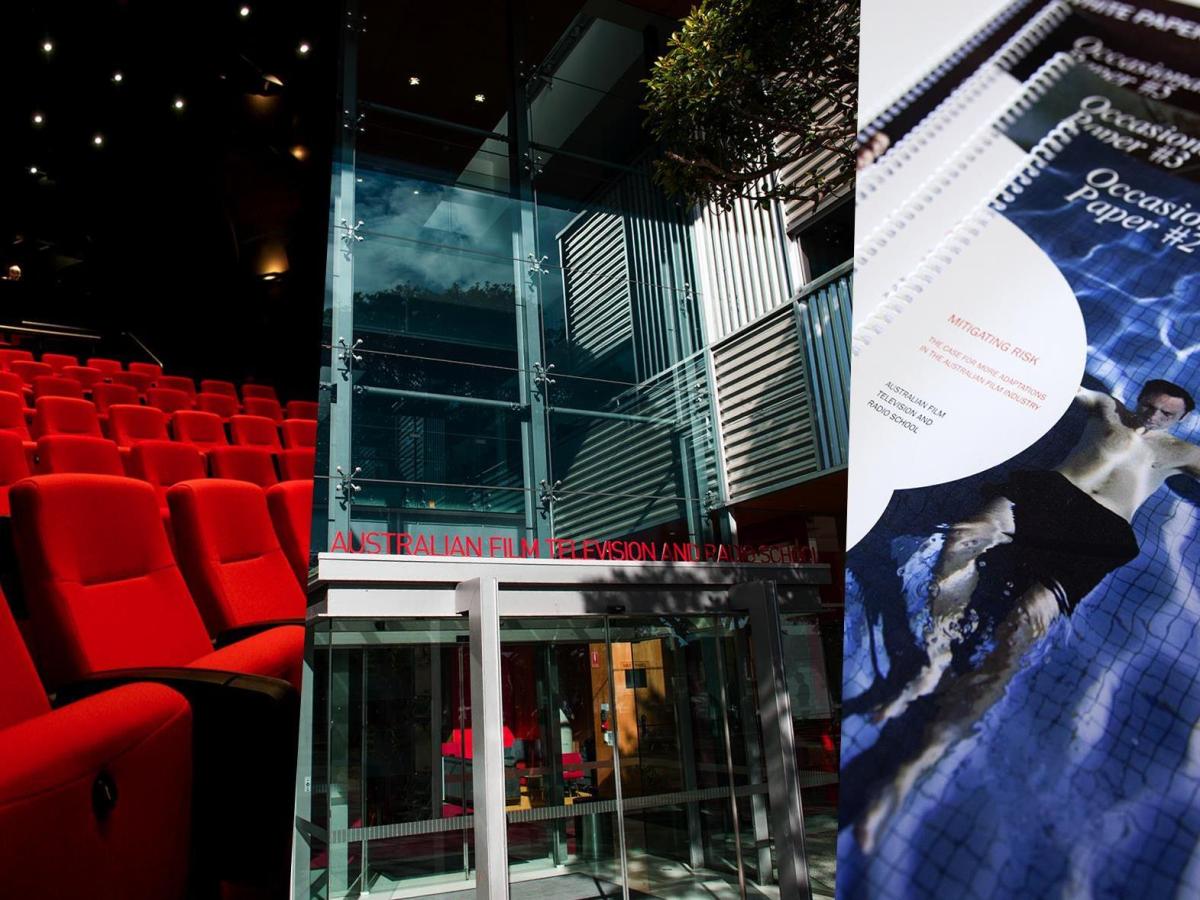‘There is a pressing need for new thinking and new leadership in the screen industries,’ said David Court, who leads the Masters of Screen Arts and Business (MSAB) course at the Australian Film Television and Radio School (AFTRS).
‘In the next few years there’s going to be a baton change when the people who are mid-career today will step up to the challenge … We are training tomorrow’s industry leaders.’
The refreshed program is deliberately focused on shaping the future of the Australian screen sector by providing skills and experience for the ‘next generation of leaders and innovators,’ said Court. Students are typically high-level industry practitioners from production backgrounds, media management, funding agency staff or entrepreneurs who run their own businesses.
One of the ways AFTRS is shaping tomorrow’s industry leaders is through the subject ‘Arts of Persuasion’, which empowers MSAB students to not only present a business case for their ideas, but to successfully lobby decision-makers to turn their ideas into reality.
Teaching follows the Harvard model of guided conversation rather than chalk-and-talk, and discussions amongst students are often spirited, stimulating and even life-changing. ‘Doing this Masters changed my life, because it changed me,’ said student Andrea Buck. ‘It gently but firmly guided me to find my voice and gave me the confidence to believe in myself.’
The AFTRS MSAB attracts a cohort of busy professionals and the course is built around that: delivered part-time over two years. Students who choose to take on this demanding and rigorous program are individuals who are looking to be challenged and stimulated and those, perhaps, reassessing their careers.
Key issues facing the screen sector such as piracy are tackled head on, as the MSAB candidates work together in small groups to find solutions to real life problems, presenting their ideas in convincing fashion.
Recent graduate and producer Sue Maslin found the course to be hugely inspiring, as it gave her the tools to successfully engage with private investors on her latest feature film The Dressmaker, which stars Kate Winslet and is currently in post-production.
Current students such as distributors John L. Simpson and Paul Wiegard, producer Andrea Buck, and animation specialist David Gurney from Blue Rocket in Tasmania, have described the course as being like a ‘brains trust in one room.’ For them, it’s a vehicle for becoming engaged with their community and making a contribution to the screen sector by having a voice about key issues.
‘The course feeds your head as well as your heart,’ said Buck. ‘It puts incredible people in front of you, and beside you and you emerge a better, stronger version of yourself.
Court commented that industry professionals can sometimes find themselves relatively isolated working in small companies, and the course offers a way of reaching across boundaries and broadening horizons. Maslin attests: ‘For me, the course was a shot in the arm, reinvigorating my engagement with the business of screen production. It challenged old habits and threw down the gauntlet about the future of screen content, audiences and business models.’
Court added that a lot of students want to have a voice in the industry. He cited a group of students who recently explored issues of piracy, commissioning an attitudinal survey of over 900 people who actively pirate copyrighted material to explore why they did it and what would convince them to change their behaviour.
The ability to present ideas in leadership roles is a key skill that the course imparts. ‘The screen sector is a heavily regulated industry,’ said Court, ‘Our graduates need to be able to represent the needs of our industry to government and decision makers. They need not just to be able to make a case well, but to win the argument.’
High-powered visiting lecturers such as Kim Williams (former CEO of News Corporation, former head of Foxtel and once head of the Australian Film Commission) sometimes set readings such as ‘Team of Rivals’ by Doris Goodwin, about former US President Abraham Lincoln, along with the Errol Morris documentary, ‘The Fog of War’ and a chapter from Barbara Tuchman’s ‘The March of Folly.’
Students engage with the material, debating the ideas presented and work on a group presentation to the class. There is an emphasis on group work and presentations in the course, as a way of preparing students to be capable of building an argument and persuading stakeholders.
‘We teach students how to make a business case and how to present it convincingly. We want our students to be able to win arguments and secure funding for their ideas,’ said Court.
The financial subjects provide graduates with the key tools they need to make sense of business plans and to do financial analysis and modelling to test out their ideas. They don’t need to become experts in these sometimes complex areas, but they do need a toolkit that will allow them to tackle them successfully.
A media strategy project challenges students to find a solution to a ‘knotty media problem’ facing a large media organisation. The students work on the problem in small groups, devise a solution and present it to the class. In formulating a solution they have access to senior media strategists from industry to assist them.
Approximately twelve places are offered for each intake into the AFTRS Masters of Screen Arts and Business. Entry is competitive and is by merit selection.
Applications are open April 15 through to June 15 for the Semester 2, 2015 intake.
More here : www.aftrs.edu.au/msab





